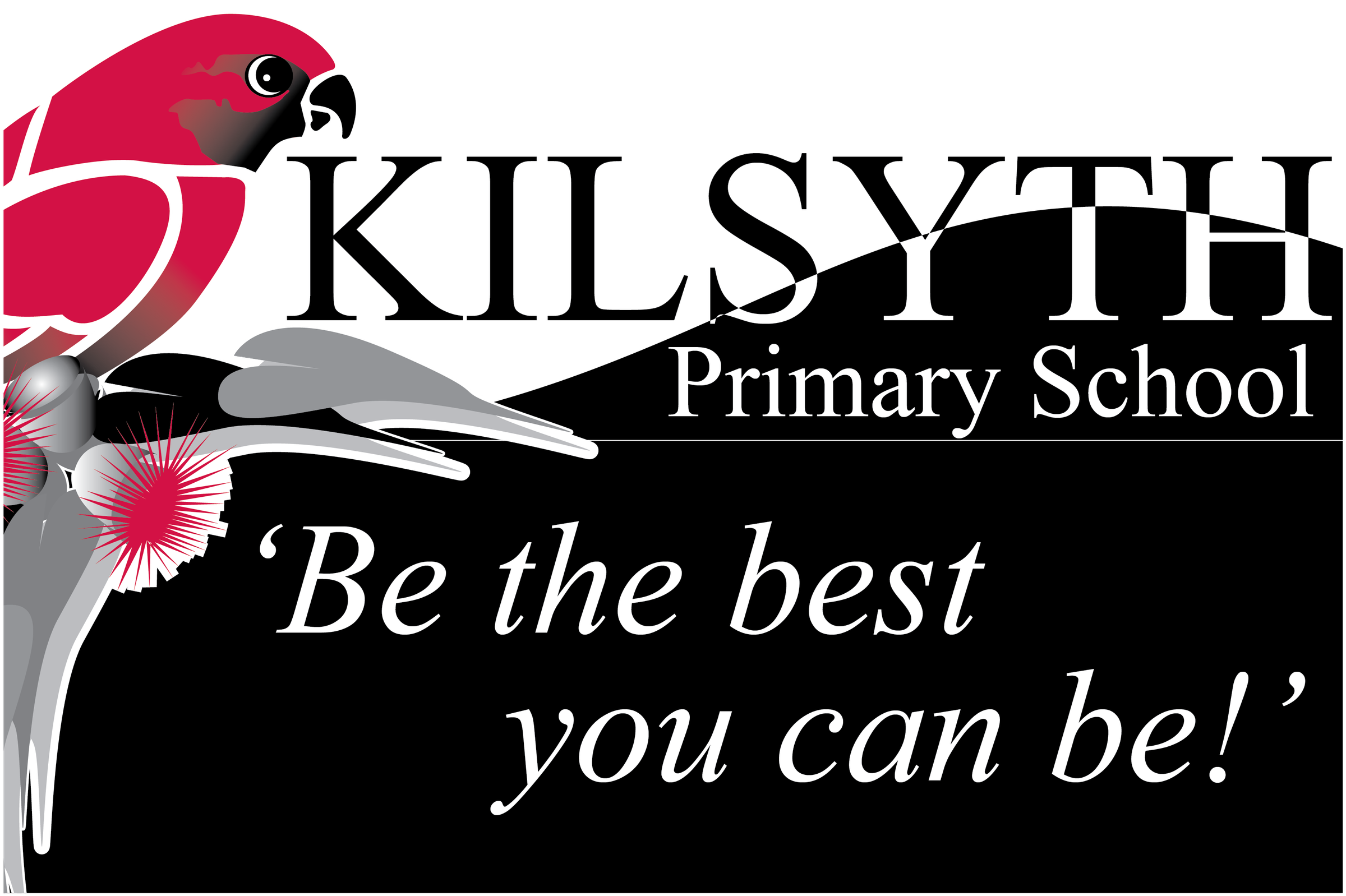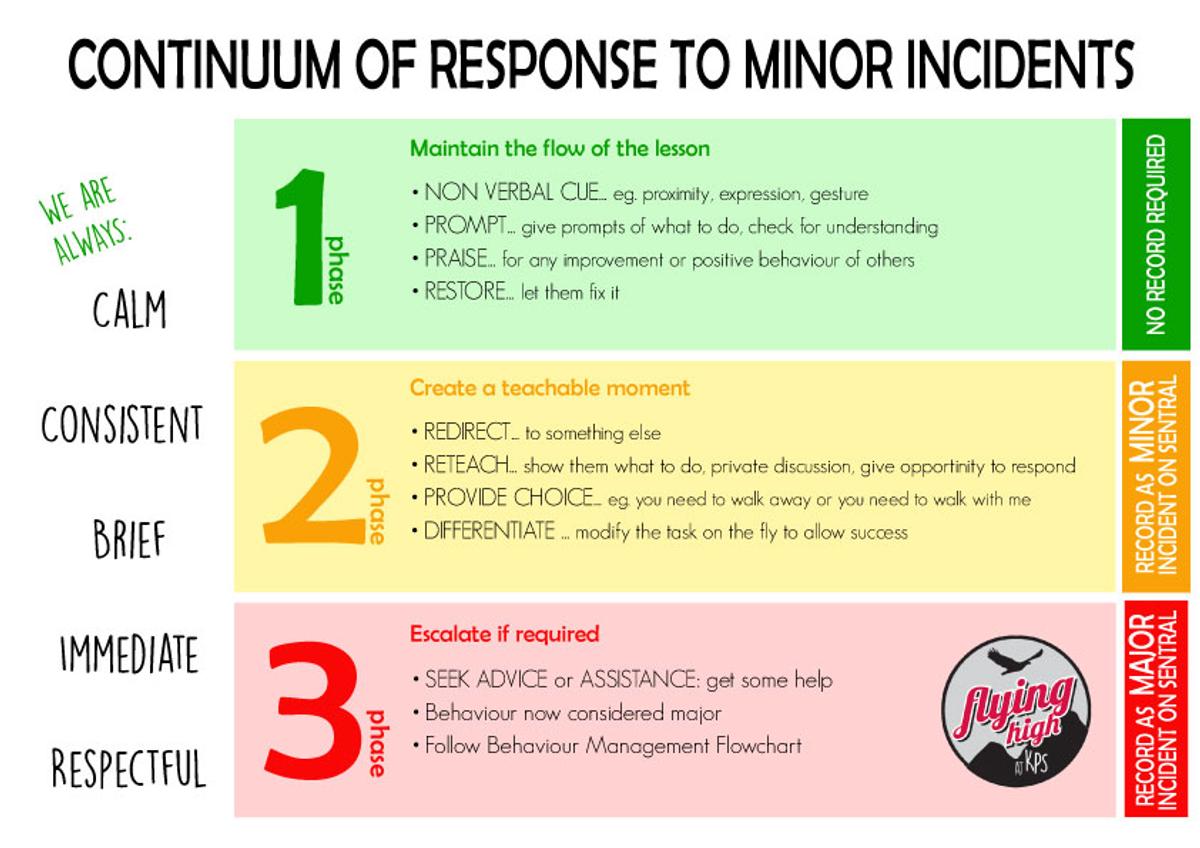Principal's Report

3000 ACKNOWLEDGEMENTS ALREADY
There has been a great feel to the start of the year at Kilsyth Primary School. There is a strong 'vibe' of resilience, excellence and respect in every part of the school. This week we reached 3000 acknowledgements of positive behaviours across our school. This is great evidence that backs up the positive vibe we have been feeling. To have reached this milestone in such a short period of time (just 5 weeks) means we have been seeing an average of 120 acknowledgements every day. One Hundred and Twenty times each day, our staff observe and acknowledge our students showing EXCELLENCE, RESILIENCE and RESPECT.
We are well on our way to achieving our goal of 20,000 positive acknowledgements in 2019!
SWPBS - Continuum of Response
As part of our School Wide Positive Behaviour Support approach, we have implemented consistent and clear responses to incidents of behaviour that do not meet our school's expected behaviours. Some incidents are minor in nature and with some prompting and non-verbal cues, the flow of the lesson can be maintained and no further action is required. Other incidents result in a 'teachable moment' - an opportunity for the teacher to redirect the student to a different behaviour, reteach the expectation, provide a choice between two alternative positive behaviours or modify the task to ensure the student can comply with the expectation. Some behaviours are more severe and require a response that involves advice or assistance from more than one member of staff, these major behaviours lead to a response that is outlined in our Behaviour Management Flowchart, which is part of our school's Behaviour Management Policy.
At all times our staff respond in a way that is CALM, CONSISTENT, BRIEF, RESPECTFUL, and IMMEDIATE.
These consistent responses help us to ensure consistent practices across our school and support us in building a positive climate for learning. For more information, please check out our website.
Responsible and Respectful Online Behaviour
It has come to our attention that a number students at local schools have been confronted by the MOMO challenge. The viral online meme, as you might have read about in the news recently, can be particularly confronting for young children. Whilst we have not heard of any students from Kilsyth PS being involved, we are aware that it is spoken about in the local area and students from other schools have found the MOMO post extremely challenging.
As a school we encourage responsible, respectful and age appropriate online behaviour and use. On our website we have some great links for parents (click here) to access websites such as iParent, ThinkUknow and Commonsense Media. These sites have some excellent resources for parents addressing online challenges with their children.
The eSafety Commissioner recently released this statement:
ADVICE FROM THE OFFICE OF THE ESAFETY COMMISSIONER 28/2/19
It is concerning when young people have been exposed to any content that scares them or plays on their emotions,like those reported via the Momo Challenge. Unfortunately, the Momo Challenge is not the first, nor will it be the last, harmful online “challenge” or phenomenon to target our children.
Our research shows 81% of parents hand their child an internet-connected device by the age of 4, so active parental engagement and oversight of a child’s online activities is critical from the start, to help ensure they are prepared for what they may encounter. As young people often do not have the maturity or judgement to cope with confronting content online, it’s important to guide and instill critical reasoning skills, so they are aware that not everything they see or receive online is real.
We encourage parents to co-view, co-play, ask questions about the games and apps they are using, and let them know you are there to support them if they are upset or uncomfortable about anything they see online.
Five top tips to help limit your child’s exposure to harmful content online:
- Engage in your child’s online activities – ask what apps, sites and games they’re using and make sure they’re age-appropriate
- Use parental controls on devices to help limit what your child is exposed to
- Let them know not everything they see online is real or true.
- Help them report and block upsetting content they see on social media sites or apps.
- Let them know they can come to you about anything upsetting they see online, and to contact Kids Helpline if they need further support.
Parents concerned their child has been exposed to the Momo Challenge, or other upsetting content should:
- Ask their child if they have come across or heard about Momo
- If they have, ask how it made them feel
- Reassure them they are safe and do not have to participate in the “challenge”
- Let them know they can come to you about anything they see online that makes them feel upset or uncomfortable, and contact Kids Helpline if they need further support.
Parents who are concerned their child may be susceptible to self-harm should be aware of the signs to look out for and know where to go for help – see more info here: https://www.esafety.gov.au/about-the-office/newsroom/blog/is-your-child-at-risk-of-self-harm-or-suicide
We encourage parents to visit www.esafety.gov.au/iparent for information and advice on keep your child safe online.
HAVE A GREAT LONG WEEKEND EVERYONE!


